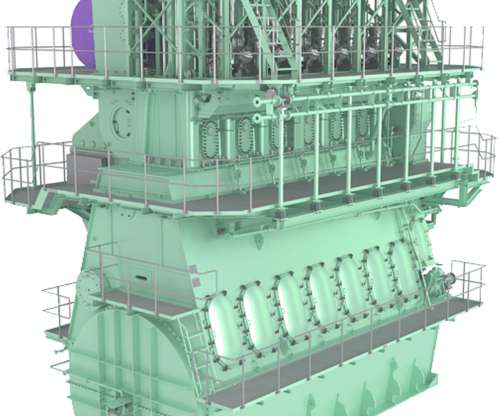Eastern Pacific Shipping, OCI & MAN partner to develop methanol & ammonia as marine fuels; retrofits and newbuilds
Green Car Congress
MARCH 6, 2021
In the meantime, developing ammonia-fueled conversion and newbuilding projects will help develop more mature zero-carbon solutions in the longer-term. MAN’s methanol-fueled ME-LGIM engine inherits well-known aspects and features of the standard MAN B&W two-stroke diesel engine.












Let's personalize your content